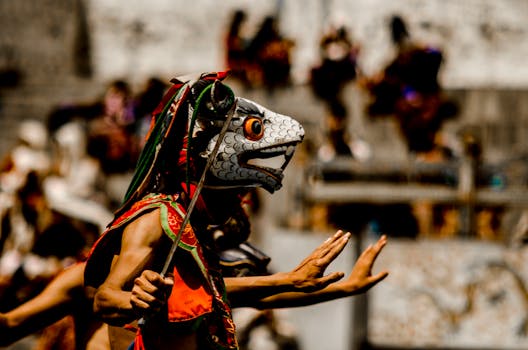Bhutan: Last Shangri-La

Bhutan, often referred to as the "Last Shangri-La," is a small Himalayan kingdom that captivates travelers with its pristine landscapes and rich cultural heritage. Nestled between India and China, this country has managed to preserve its unique identity through centuries of isolation. Bhutan's commitment to maintaining its environment and traditional way of life sets it apart from other destinations, making it a true gem for those seeking an authentic travel experience.
One of the most fascinating aspects of Bhutan is its approach to development. The nation prioritizes Gross National Happiness (GNH) over Gross Domestic Product (GDP), focusing on sustainable development, cultural preservation, environmental conservation, and good governance. This philosophy permeates every aspect of Bhutanese life, from government policies to individual daily practices. The result is a society that balances modernity with tradition in a way few other countries can claim.
The landscapes of Bhutan are nothing short of breathtaking. From the towering peaks of the Himalayas to lush valleys and dense forests, the natural beauty is awe-inspiring. Trekking enthusiasts will find numerous trails that offer both challenge and reward, including the famous Snowman Trek, considered one of the most difficult treks in the world. Wildlife lovers can explore the country's diverse ecosystems, home to rare species like the Bengal tiger, snow leopard, and red panda.
Cultural Richness
Bhutan's culture is deeply rooted in Buddhism, which influences everything from architecture to daily rituals. The country's dzongs (fortress monasteries) are architectural marvels that serve as religious centers and administrative offices. Festivals such as Paro Tsechu provide a window into Bhutanese traditions, featuring masked dances and vibrant costumes that tell stories of good versus evil.
Traditional arts and crafts also play a significant role in Bhutanese culture. Handwoven textiles, intricate wood carvings, and thangka paintings are just a few examples of the craftsmanship that has been passed down through generations. Visitors can witness these skills firsthand in local markets and artisan workshops.
Environmental Conservation
Bhutan is renowned for its commitment to environmental sustainability. The country has pledged to remain carbon neutral and currently absorbs more carbon than it emits. Over 70% of Bhutan is covered by forests, which are protected by strict conservation laws. The government encourages eco-friendly practices among its citizens and promotes green tourism initiatives.
The Royal Government of Bhutan has established several national parks and wildlife sanctuaries to protect its natural heritage. Jigme Dorji National Park, for instance, is a haven for trekkers and nature enthusiasts alike, offering stunning landscapes and a chance to spot rare wildlife.
Sustainable Tourism
Tourism in Bhutan is regulated by a "high value, low impact" policy aimed at preserving the country's culture and environment. Visitors are required to book their trips through licensed tour operators and pay a daily tariff that covers accommodation, meals, transportation, and guide services. This approach ensures that tourism revenue benefits local communities while minimizing environmental impact.
Despite these regulations, there are plenty of opportunities for visitors to explore Bhutan's wonders. From hiking up to the iconic Tiger's Nest Monastery perched on a cliffside to exploring the bustling capital city of Thimphu, travelers can immerse themselves in both natural beauty and cultural richness.
Local Cuisine
Bhutanese cuisine is another highlight for visitors. Characterized by its use of chili peppers and cheese, dishes like ema datshi (chili cheese stew) are staples in every household. Meals often include red rice, buckwheat noodles, and fresh vegetables sourced from local farms. For those looking to try something new, dried yak meat or butter tea offers a unique taste of Bhutanese culinary traditions.
Food festivals such as the annual Royal Highland Festival in Laya provide an opportunity for tourists to sample traditional dishes while enjoying cultural performances and local crafts.
A Place Like No Other
Bhutan's blend of natural beauty, cultural richness, and commitment to sustainability makes it a truly unique destination. Whether you're trekking through pristine landscapes or exploring ancient monasteries, you'll find yourself immersed in experiences that resonate deeply with both heart and mind.
| Key Features | Details |
|---|---|
| Cultural Heritage | Buddhist traditions, dzongs, festivals |
| Environmental Conservation | Carbon-neutral policy, protected forests |
| Sustainable Tourism | High value-low impact policy |
| Cuisine | Ema datshi, butter tea |
| Adventure Activities | Trekking, wildlife spotting |
Bhutan stands out as an exceptional travel destination due to its unwavering commitment to preserving its natural environment and cultural heritage. The country's unique approach to development through Gross National Happiness offers valuable lessons on sustainable living that resonate beyond its borders.